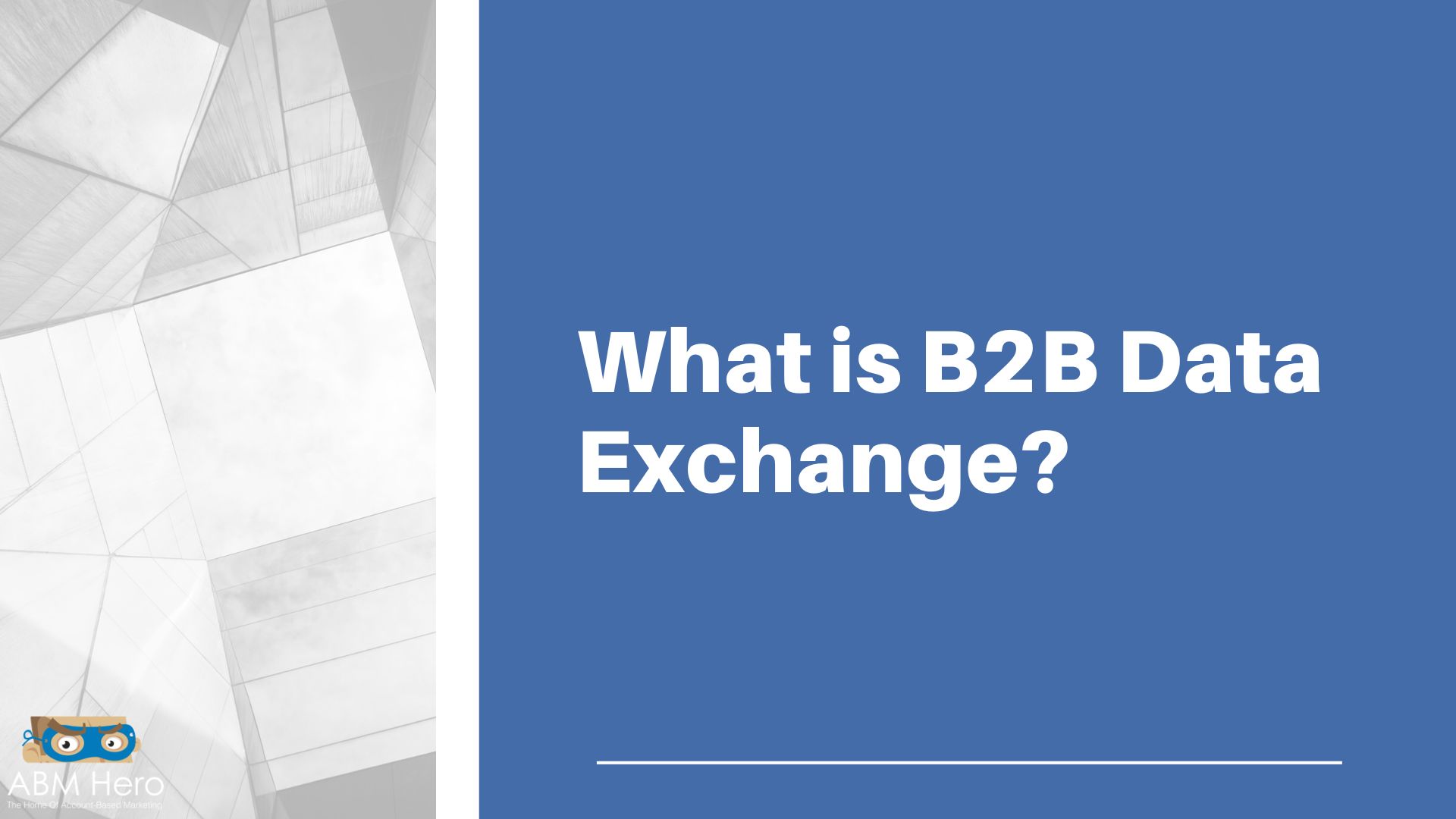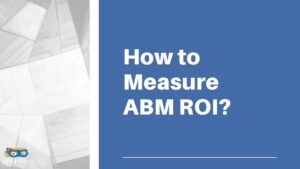If you’ve ever wondered what B2B data exchange is, you’re not the only one. This data exchange is a process whereby businesses share information to streamline their operations and improve their bottom line.
By exchanging data, businesses can avoid duplication of effort, save time and money, and enhance their overall efficiency.
There are different reasons why companies monitor B2B Data Exchange. And this article will shed light on this matter.
What is B2B Data Exchange?

B2B data exchange is the process of transferring data from one system to another by reorganizing it.
As a result, successful business collaboration is made possible by the target data becoming an accurate representation of the source data. As it enables businesses to share data with a network of suppliers, clients, and other partners, it allows them to address the difficulties of data management.
B2B Data Exchange had a significant influence on several areas, including universal data transformation that supported a wide range of formats, documents, and files and had the advantage of lowering operational costs through thorough data transformation. As well as facilitating huge data transactions, it ensures compliance with data format standards and allows for scalable data integration. Data exchange is essential for businesses together with transcending all industries and fields.
How Does B2B Data Exchange Works?
B2B data exchange is a process whereby businesses share data with each other in order to facilitate business operations.
This data can be change in some manner, including via email, file transfer, or web services. The data exchanged can be in different formats, including text, images, or even video.
To ensure that the data exchanged is accurate and up-to-date, businesses often use data synchronization tools to automatically exchange data between their systems.
Why is B2B Data Exchange Important?
B2B data exchange is essential for a business network for many reasons.
Speedy Transfer of Information
B2B data exchange allows businesses to share data with each other in a secure and efficient manner.
This data sharing can help businesses keep track of their inventory, customers, and suppliers. There are a lot of different ways that B2B data exchange can speed up tracking their customers.
One way is by automating the data entry process. It can save plenty of time and money by allowing businesses to quickly and effortlessly track their customers’ information.
Another way is by providing businesses with real-time data. It can help businesses make better decisions and keep track of their customers more effectively.
Better Resource Allocation
B2B data exchange can help businesses save time and money by reducing the need for manual data entry, providing real-time data visibility, and automating data-driven processes.
B2B data exchange platforms provide a central hub for businesses to manage their data exchange activities.
Through data entry automation and real-time data visibility, businesses can save time and money on manual data entry and data management.
It can also help businesses cut back by automating data-driven processes.
By automating tasks such as order processing, invoicing, and shipping, businesses can free up staff to focus on more value-added activities.
Improves Decision-Making
B2B data exchange can help businesses improve their decision-making processes by giving them access to timely and accurate data.
It can influence businesses to come up with data-driven decisions by providing access to data that can be used to inform decision-making. By exchanging details with other businesses, they can gain insights into trends and patterns that can help them make best possible decisions.
In addition, it can help businesses track their performance over time and draw a comparison with other businesses.
This data can help businesses identify areas to improve and make possible changes to their operations.
Bottlenecks of an Effective B2B Data Exchange
A B2B data exchange connects disjointed networks of information sources which could paralyze and affect the overall strategy of the company. Here are some of the common bottlenecks that affect B2B data exchange.
Incompatible Data Formats
Incompatible data formats can hinder a company’s performance in various ways.
It makes it difficult for employees to access and use data when necessary. It can lead to wasted time and resources as employees struggle to find the information they demand.
Moreover, incompatible data formats can make it difficult for a company to share data with its partners and customers. It can lead to lost business opportunities and a competitive disadvantage.
Hence, incompatible data formats can make it difficult for a company to analyze and understand its data resulting in poor decision-making and a loss of efficiency.
Inferior Data Quality
Lack of data quality can have some negative effects on a company’s ability to perform effective B2B data exchange.
It can lead to inaccurate or incomplete data exchange, which can, in turn, lead to incorrect decisions being made based on that data.

It can also lead to delays in the exchange process, as data of poor quality may need to be polished or verified before it may be used.
Likewise, poor data quality can also lead to decreased trust between the companies involved in the exchange, as each company may question the accuracy of the data provided by the other.
Lack of Standardization
When a company does not have standardized data, it will have difficulty exchanging data with other companies beneficially and efficiently.
It is because each company will have its way of organizing and storing data, making it difficult to understand and use data from another company.
Lack of standardization can also lead to errors and inconsistencies in data, making it complicated to trust and use.
IT Infrastructure Issues
IT infrastructure plays a critical role in enabling effective B2B data exchange. Poorly designed or managed IT infrastructure can lead to significant performance issues, including data loss, system downtime, and security breaches.
To sidestep these negative impacts, companies must carefully plan and manage their IT infrastructure.
It includes ensuring that sufficient resources are allocated to support B2B data exchange, designing robust and scalable systems, and implementing essential security and disaster recovery measures.
Lack of Governance
Lack of governance can negatively affect a company’s performance in B2B data exchange.
Without governance, there may be no clear guidelines or expectations for how data should be exchanged between businesses.
It can lead to confusion and frustration on both one and the other, as each company tries to figure out what the other wants or needs.
Without governance, there may be no direct system for handling errors or discrepancies during data exchange.
It can again lead to frustration and wasted time as businesses try to resolve these issues on their own.
Without governance, companies may be less likely to trust each other with sensitive or confidential information.
Inadequacy of Skilled Resources
The lack of skilled resources can have a significant effect on a company’s ability to perform an effective B2b data exchange.
For this reason, the company will need to rely on less experienced staff to manage the exchange, which can lead to errors and delays.
Also, the company may not have the required expertise to properly configure the exchange, which can further hamper its performance.
Misaligned Business Objectives
Misaligned business objectives can affect a company’s performance in a B2B data exchange.
If the objectives are not properly aligned, it can cause confusion among employees as to what the company’s goals are. It can lead to employees working against each other instead of together, which can hinder productivity.

Futhermore, misaligned business objectives can also lead to not being able to properly assess the company’s performance. Making it challenging to measure performance against established metrics, and can ultimately lead to a decline in performance.
The B2B Data Exchange has revolutionized the way businesses operate, and it is only natural that more and more companies are keeping an eye on this trend.
The benefits of the B2B Data Exchange are merely too great to ignore, and it is only a matter of time before an increasing number of companies adopt this technology.
With the B2B Data Exchange, businesses can operate more efficiently and effectively with less money and less waste.





